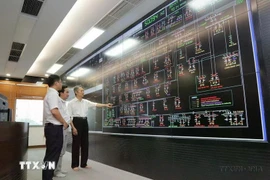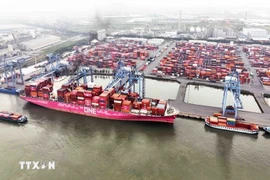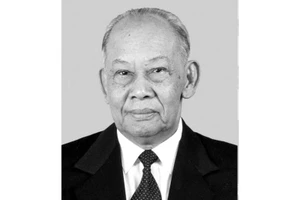Tokyo (VNA) - The Politburo’s Resolution 57-NQ/TW on breakthroughs in science, technology, innovation and national digital transformation is an important step to help Vietnam with sustainable development, modernisation and deep integration in the new period, according to Chairman of the Association of Vietnamese Intellectuals in Japan Dr. Le Duc Anh.
Talking to Vietnam News Agency correspondents in Tokyo, Anh affirmed that the resolution holds strategic significance as Vietnam needs to innovate its growth model, and improve labour productivity and competitiveness. The resolution identifies science, technology, innovation and national digital transformation as the main driving force for socio-economic development, helping Vietnam escape the growth model based on cheap labour and resources.
He pointed to several industries with potential for breakthroughs if Vietnam makes strategic investments and effectively utilises technology. They are information technology and digital transformation, production and manufacturing technology, semiconductor technology, biotechnology and healthcare, renewable energy, and high-tech agriculture.
Regarding the promotion of links between the state, scientists and businesses, the expert said that Vietnam needs to have clear financial and legal policies, promote research and application, and build an innovation ecosystem.
He stressed the necessity for promoting financial mechanisms and support policies, adding that the state should increase investment in research and development (R&D), create a research support fund, and provide tax incentives for businesses investing in technology.
In addition, it is essential to enhance linkages between universities, research institutes and enterprises, encourage enterprises to sponsor and cooperate in research with universities, form innovation centres, build startup "incubators", and support the commercialisation of research results, Anh stated.
Another important mechanism is intellectual property protection and benefit sharing, which requires improving the intellectual property protection system, helping scientists feel secure in transferring technology, and clearly defining the rights and responsibilities of each party when collaborating on research.
He also proposed Vietnam build an innovation ecosystem, form high-tech zones, research and application centres with major universities as the core, connect scientists and businesses, strengthen human resources training, and encourage enterprises to use advanced technology.
According to the expert, there is currently a large number of young Vietnamese intellectuals living, studying and working abroad, especially in Japan, who can contribute a lot to innovation and sci-tech development in Vietnam.
To attract this force, Vietnam should create opportunities, attractive policies and a good working environment, Anh said, adding that a flexible cooperation mechanism is also needed to enable intellectuals to participate in domestic projects without requiring their full-time presence./.
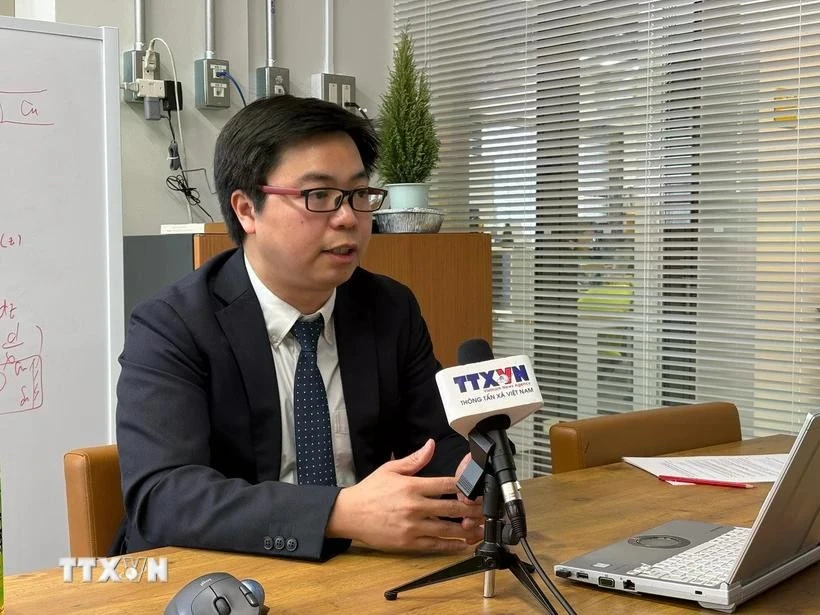
See more
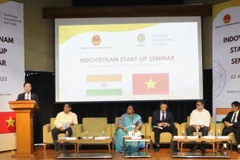
Vietnam, India step up support for startups
Vietnamese Ambassador to India Nguyen Thanh Hai highlighted the workshop as a key step in realising agreements from Prime Minister Pham Minh Chinh’s visit to India last year, where the two sides committed to boosting collaboration in technology and startups.

Expert in UK lauds Vietnam’s determination in new resolution in science, technology
Huan praised the determination to remove all barriers, reform financial management mechanisms in scientific tasks, simplify administrative procedures, and grant autonomy in the use of research and technology development funds.
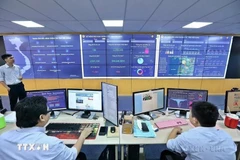
Vietnam needs comprehensive plan for science-technology breakthroughs: expert
Vietnam needs a comprehensive plan, a long-term vision, and the active involvement of various sectors and economic stakeholders to create breakthroughs in science, technology, innovation, and national digital transformation, according to Ha Son Tung, senior specialist and deputy head of the Advanced Optical Technologies Department under Singapore’s Agency for Science, Technology and Research (A*STAR).

Cyberattack trends in 2025: Rising threats and urgent actions for businesses
The report provides a comprehensive overview of the country’s cybersecurity situation over the past year, warning of increasingly complicated threats and offering key recommendations for businesses to strengthen their defences.
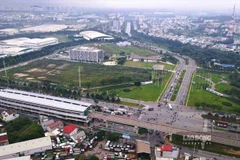
HCM City forum strengthens Vietnam’s semiconductor, high-tech supply chains
Speaking at the event, Vice Chairman of the municipal People’s Committee Vo Van Hoan highlighted that the city has established itself as an attractive destination for investments in the domains, given its complete ecosystem to develop emerging industries with sound human resources and numerous semiconductor enterprises.
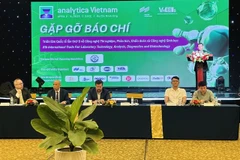
HCM City set to host laboratory expo Analytica Vietnam
Analytica Vietnam 2025, organised by the National Agency for Science and Technology Information and Statistics and Germany’s Messe München GmbH company, will showcase technologies, equipment and solutions from leading manufacturers and distributors of laboratory instruments, analytical tools and technologies.

Vietnam has advantages in promoting sci-tech development, innovation: British scholar
The world has gone deeply into the Fourth Industrial Revolution, and Resolution No.57-NQ/TW on making breakthroughs in science, technology, innovation, and national digital transformation is a positive signal showing that Vietnam is already embracing and engaging in change.
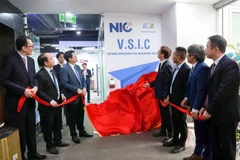
Vietnam Semiconductor Innovation Centre boots up in Hanoi
The launch of the VSIC shows a key commitment from FPT Corporation, NIC, and their partners to establish a sustainable semiconductor ecosystem in Vietnam, positioning the country as an attractive destination in this strategic industry.
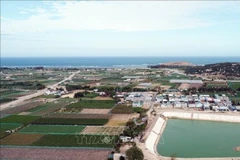
Vietnam ensures int’l commitments in nuclear power development
Vietnam, like other first-time nuclear power developers, needs to fully participate in international treaties on nuclear development, experts said.
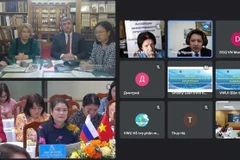
Symposium discusses ways to encourage women's engagement in science-technology
Tuyen stressed that the VWU has been carrying out practical activities to encourage women’s engagement in science and technology development, including promoting the establishment of the Vietnam Association for Intellectual Women, issuing a resolution on supporting women’s international integration by 2030, and launching initiatives like the Kovalevskaia Awards to encourage scientific research, innovation, startup and participation in digital economy and society among women.
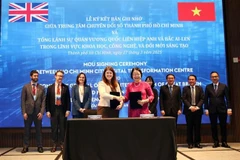
HCM City, UK strengthen partnership in digital transformation, innovation
Under the MoU, both sides will promote cooperation in research and innovation among policymakers, government agencies, research institutions, universities, and businesses to support digital transformation and drive technological advancements in the southern city.

Pilot programme allows SpaceX to provide satellite Internet services in Vietnam
This pilot programme will not impose any restrictions on foreign investors regarding ownership percentages or capital contributions, according to recently-signed Decision No. 659/QD-TTg.
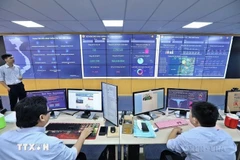
Politburo's science-tech resolution gives push to socio-economic development
Vietnam has set ambitious milestones, aiming to rank among the top three ASEAN countries in artificial intelligence (AI) research and development, digital competitiveness, and the e-government development index by 2030.
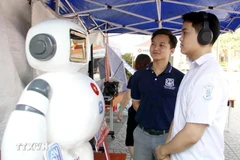
Russian expert hails Vietnam’s sci-tech development policy
Vietnam has chosen a right direction by setting the goal of making science – technology development, and innovation main driving forces for socio-economic development, said Dr. Grigory Trubnikov, Academician of the Russian Academy of Science and Director of the the Joint Institute for Nuclear Research (JINR) in Dubna (commonly known as Dubna Institute).

Vietnam harnesses AI to transform public services
The Government is accelerating AI application to reduce the paper workload and improve operation efficacy.

PM calls for nationwide digital literacy to empower citizens
PM Pham Minh Chinh tasked the Ministry of Science and Technology and the Ministry of Education and Training with developing a digital competency framework tailored to different groups, ensuring that civil servants, students, and workers alike have the necessary digital skills to work, learn, and engage safely and effectively in an increasingly digital world.
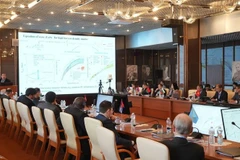
Vietnam, Russia hold promising scientific collaboration
Since 1982, when the Vietnam Academy of Science and Technology (VAST) became the official representative of Vietnam at JINR, the training of scientific personnel has been systematised, laying the foundation for the development of a high-quality scientific and technological workforce, playing a significant role in the country's renewal process.
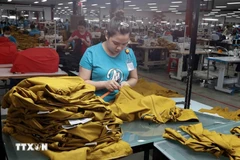
Vietnam poised for tech revolution: insights from Cambridge expert
Bang highlighted Vietnam’s advantages such as a young and tech-savvy population, steady economic growth, deep integration into global supply chains across multiple industries, and modern infrastructure like large airports and seaports.
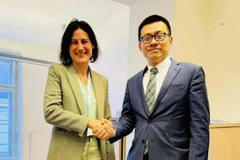
Vietnam, Austria explore cooperation in emerging technologies
Vietnam is highly interested in and wishes to strengthen partnerships with Austrian hi-tech companies, helping it make breakthrough in science, technology, and digital transformation, said Ambassador Vu Le Thai Hoang.
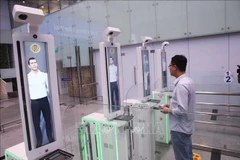
Preparations underway for biometrics, VNeID application at six airports
The biometric system is set for deployment at Tan Son Nhat between April and June, while at Noi Bai between March and September.
